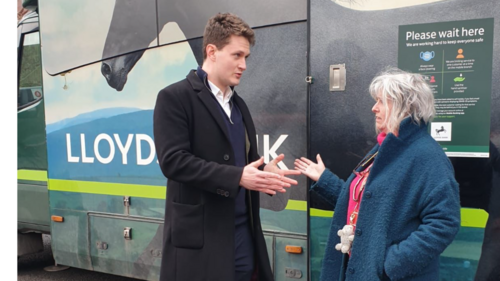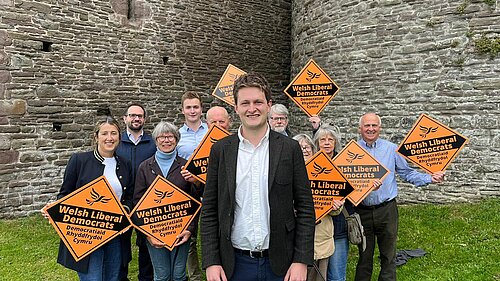Rural Residents Shut Out by Big Banks

Everyone needs a bank. It’s impossible to live without one. It doesn’t matter where or how you live, everyone needs access to banking services.
Yet 54 bank branches are being closed a month, with Ystradgynlais being the latest rural town to receive a notice of closure from Lloyds Bank. The argument for closing banks is a common one that many customers have come to rue. It goes like this:
Fewer customers are using over-the-counter services and therefore banks should adapt to changing consumer behaviour.
Yet by closing bank branches to save on overheads, branches are not treating customers fairly or with respect. Given the critical importance of being able to access banking services, banks should not be able to decide that some customers are just too expensive to cater for and thereby prevent them from accessing their cash. Clearly banks are prioritising efficiency savings, moving to a digital-first business model with lower headcounts and wider profit margins.
But banks are not supermarkets. Consumers cannot switch seamlessly between them. Closing a bank branch in a rural area means customers, most likely the elderly or the disabled, may have to travel for hours on public transport to make withdrawals or access services. People who live in rural areas should not be subjected to harsher conditions than people who live in urban ones.
Recent events have emphasised this disparity. During March, successive governments bailed out crashing global banks. It took just one weekend for the UK government to swoop in and protect depositors at Silicon Valley Bank UK. That failing bank was sold to HSBC for £1. Apparently, HSBC can afford to absorb a bank with enormous liabilities but cannot afford to keep a small bank branch open in Brecon. Last year HSBC made $17.5 billion in profit.
This is grossly unfair. We have a government that is willing to intervene and correct a market failure that could result in the loss of deposits for people in the tech industry, and yet that same government will not intervene to protect people who use bank branches in rural areas.
Let us not forget that billions of pounds of taxpayers’ money has been used over the past 15 years to keep the banking sector stable after the financial crisis of 2008. A crisis the banking sector caused, and a crisis our economy has still not fully emerged from.
As citizens, we have a right to demand something back in return for the billions of pounds of taxpayers’ money that was spent on propping up the banks. The right to cash is a fair request, a just trade.
Finally, the Conservatives are pushing a Financial Services and Markets Bill through parliament, supposedly to boost the ‘competitiveness’ of the Financial Services industry. Yet Brecon and Radnor’s Conservative MP, Fay Jones, opposed an amendment (New Clause 7) to the Financial Services and Markets Bill that would have protected access to cash in rural areas. Five of her fellow Conservative MPs broke their party whip and voted for the amendment, but not Fay. She should put her constituents’ interests ahead of her party’s.

Sign up
for email updates


